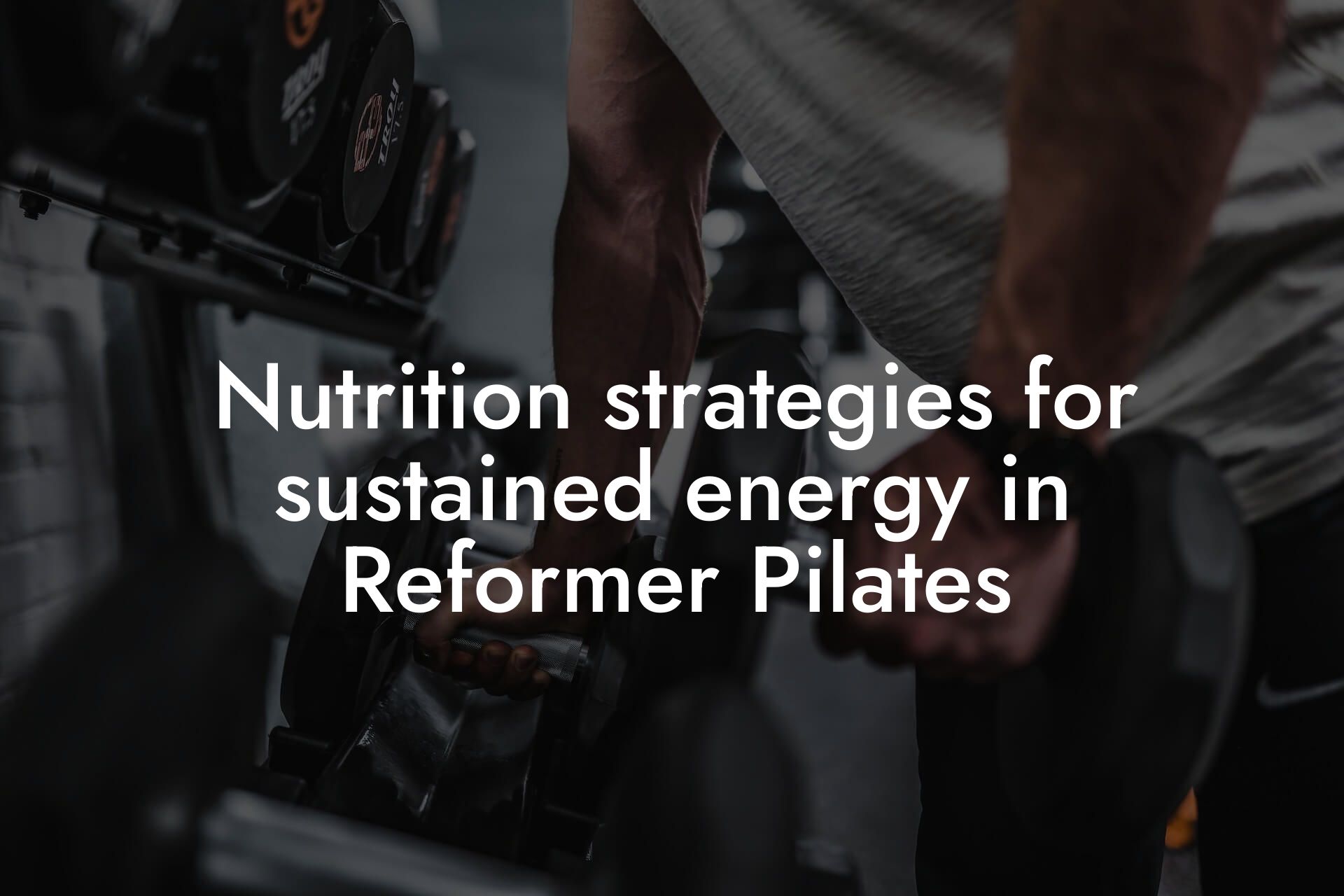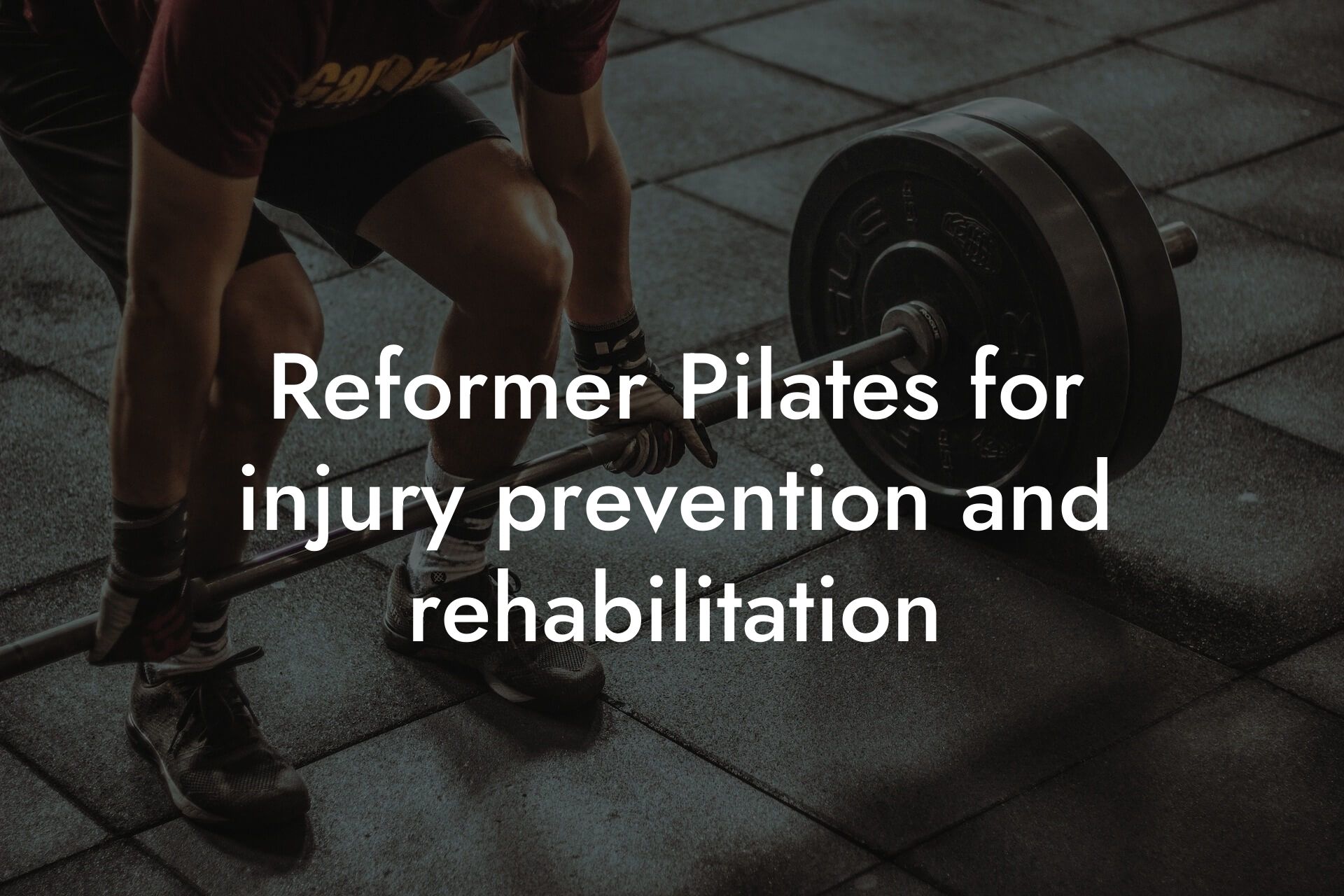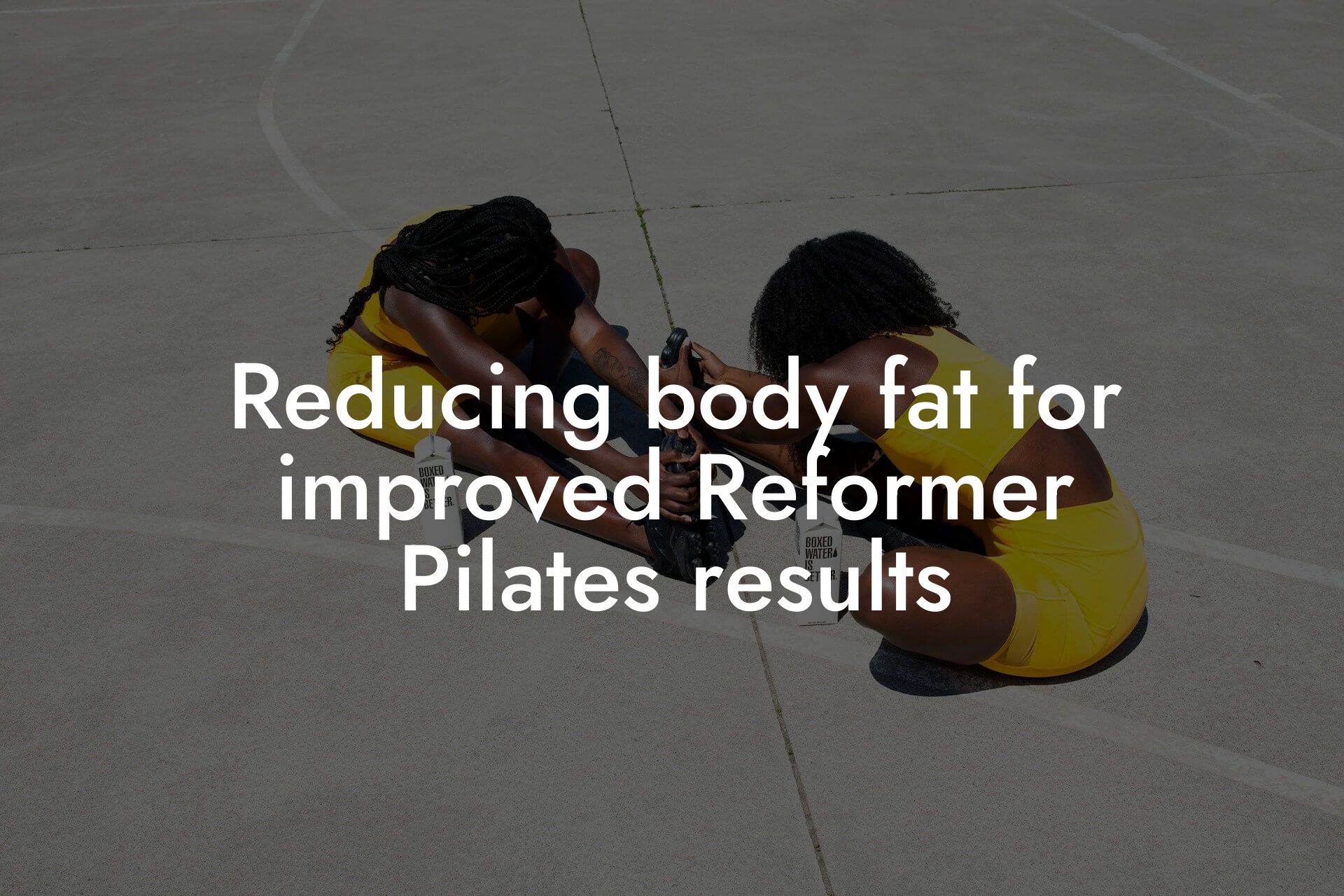As high-earning professionals, taking care of your physical appearance and overall health is crucial for maintaining a competitive edge in your industry. One often overlooked aspect of physical health is bone density, which plays a vital role in your overall well-being and performance. In this article, we'll delve into the importance of bone density, its relationship with Reformer Pilates, and how incorporating this practice into your routine can benefit your bone health.
Table of Contents
What is Bone Density?
Bone density refers to the measure of the amount of minerals, such as calcium and phosphorus, present in your bones. It's an indicator of bone strength and density, with higher densities indicating stronger bones. Peak bone density is typically reached in early adulthood, around the age of 30, and then gradually declines with age. This natural decline can lead to osteoporosis, a condition characterized by brittle and porous bones, increasing the risk of fractures and osteoporotic diseases.
Why is Bone Density Important?
Maintaining healthy bone density is crucial for overall health and performance. Strong bones provide a solid foundation for your muscles, allowing for optimal movement and function. They also protect your internal organs, such as the heart and lungs, and play a vital role in blood cell production. Furthermore, good bone density can reduce the risk of osteoporotic fractures, which can be debilitating and even life-threatening.
The Role of Reformer Pilates in Bone Density
Reformer Pilates is a low-impact, resistance-based exercise method that targets the core muscles, improving posture, balance, and overall physical fitness. This form of exercise is particularly beneficial for bone density due to its emphasis on weight-bearing movements, which stimulate bone growth and density. The Reformer machine uses springs and a moving carriage to provide resistance, allowing for a range of exercises that target different muscle groups and promote bone density.
How Reformer Pilates Improves Bone Density
Reformer Pilates improves bone density in several ways:
1. Weight-bearing exercises: Reformer Pilates involves weight-bearing exercises that stimulate bone growth and density, particularly in the hips, spine, and legs.
2. Resistance training: The resistance provided by the Reformer machine helps build muscle mass, which in turn supports bone density.
3. Low-impact movements: Reformer Pilates is a low-impact exercise method, making it an ideal option for individuals with joint issues or osteoporosis.
4. Improved posture and alignment: Reformer Pilates helps improve posture and alignment, reducing the risk of osteoporotic fractures and promoting healthy bone density.
Benefits of Reformer Pilates for Bone Density
Incorporating Reformer Pilates into your exercise routine can have numerous benefits for bone density, including:
1. Increased bone density: Regular Reformer Pilates practice can help increase bone density, reducing the risk of osteoporotic fractures.
2. Improved muscle mass: Reformer Pilates helps build muscle mass, which supports bone density and overall physical fitness.
3. Enhanced posture and alignment: Reformer Pilates improves posture and alignment, reducing the risk of osteoporotic fractures and promoting healthy bone density.
4. Reduced risk of osteoporosis: Regular Reformer Pilates practice can reduce the risk of osteoporosis, a condition characterized by brittle and porous bones.
How to Incorporate Reformer Pilates into Your Routine
Incorporating Reformer Pilates into your routine is easier than you think. Here are some tips to get you started:
1. Find a qualified instructor: Look for a certified Reformer Pilates instructor who has experience working with clients with bone density concerns.
2. Start slow: Begin with gentle, low-impact exercises and gradually increase the intensity as you become more comfortable with the movements.
3. Focus on proper form: Ensure you're performing exercises with proper form and technique to avoid injury and maximize the benefits for bone density.
4. Make it a habit: Aim to practice Reformer Pilates at least 2-3 times a week, ideally as part of a comprehensive exercise routine that includes other forms of exercise, such as cardio and strength training.
Maintaining healthy bone density is crucial for overall health and performance. Reformer Pilates is an excellent way to improve bone density, reduce the risk of osteoporosis, and enhance overall physical fitness. By incorporating Reformer Pilates into your routine, you can take control of your bone health and maintain a competitive edge in your industry. Remember to start slow, focus on proper form, and make it a habit to reap the benefits of Reformer Pilates for bone density.
At Tano Performance Group, we understand the importance of bone density and its impact on overall health and performance. Our DEXA machine provides a comprehensive body assessment, giving you a detailed understanding of your bone density and other vital health metrics. Take control of your bone health today and schedule a consultation with our team of experts.
Frequently Asked Questions
What is bone density, and why is it important for Reformer Pilates practice?
Bone density refers to the measure of how dense and strong your bones are. It's an important aspect of overall health, especially as we age, as it can affect our risk of osteoporosis and fractures. In the context of Reformer Pilates, maintaining healthy bone density is crucial because it can help prevent injuries and improve overall performance.
How does Reformer Pilates help improve bone density?
Reformer Pilates is a low-impact, weight-bearing exercise that can help stimulate bone growth and density. The gentle, controlled movements and resistance provided by the Reformer machine can help strengthen bones, particularly in the spine, hips, and legs, which are common areas affected by osteoporosis.
What are the benefits of incorporating Reformer Pilates into my exercise routine for bone density?
Incorporating Reformer Pilates into your exercise routine can have numerous benefits for bone density, including improved bone strength, increased muscle mass, enhanced balance and coordination, and reduced risk of fractures and osteoporosis.
How often should I practice Reformer Pilates to see improvements in bone density?
Aim to practice Reformer Pilates at least 2-3 times per week, with a minimum of 30 minutes per session. Consistency is key, so try to make it a regular part of your exercise routine.
Can Reformer Pilates help with osteoporosis prevention?
Yes, Reformer Pilates can be an effective way to prevent osteoporosis, particularly for individuals who are at high risk or have already been diagnosed with the condition. By strengthening bones and improving overall muscle mass, Reformer Pilates can help reduce the risk of fractures and osteoporosis.
Is Reformer Pilates suitable for individuals with osteoporosis?
Yes, Reformer Pilates can be modified to accommodate individuals with osteoporosis. However, it's essential to work with a qualified instructor who has experience teaching clients with osteoporosis. They can help you develop a personalized program that takes into account your specific needs and limitations.
What are some common exercises in Reformer Pilates that target bone density?
Some common exercises in Reformer Pilates that target bone density include the Hundred, Teaser, and Leg Circles. These exercises help strengthen the core, legs, and spine, which are all important areas for bone density.
How does Reformer Pilates compare to other forms of exercise for bone density?
Reformer Pilates is a low-impact, gentle exercise that can be more accessible for individuals who may have mobility or joint issues. Compared to high-impact exercises like running or jumping, Reformer Pilates can be a more sustainable and enjoyable option for improving bone density.
Can Reformer Pilates help with bone density loss due to menopause?
Yes, Reformer Pilates can be an effective way to combat bone density loss due to menopause. The gentle, weight-bearing exercises can help stimulate bone growth and density, which can be particularly beneficial during this time.
What role does nutrition play in bone density and Reformer Pilates?
Nutrition plays a critical role in bone density and overall health. A diet rich in calcium, vitamin D, and other essential nutrients can help support bone health and density. Additionally, a healthy diet can help support muscle growth and overall performance in Reformer Pilates.
Can Reformer Pilates help with bone density in older adults?
Yes, Reformer Pilates can be an effective way to improve bone density in older adults. The low-impact, gentle exercises can help stimulate bone growth and density, which can be particularly beneficial for older adults who may be at higher risk of osteoporosis and fractures.
How does Reformer Pilates differ from other forms of Pilates for bone density?
Reformer Pilates is a specific type of Pilates that utilizes a machine called the Reformer. This machine provides resistance and support, which can help target specific areas of the body, including the bones. Other forms of Pilates, such as Mat Pilates, may not provide the same level of resistance and support.
Can I practice Reformer Pilates at home for bone density?
While it's possible to practice Reformer Pilates at home, it's recommended to work with a qualified instructor who can provide personalized guidance and feedback. This is especially important if you're new to Reformer Pilates or have specific goals or concerns, such as improving bone density.
How long does it take to see improvements in bone density with Reformer Pilates?
Improvements in bone density can take time, and it's essential to be patient and consistent with your Reformer Pilates practice. You may start to notice improvements in bone density within 6-12 months, but it's essential to continue practicing regularly to maintain and continue improving bone density.
Can Reformer Pilates help with bone density in individuals with a history of fractures?
Yes, Reformer Pilates can be an effective way to improve bone density in individuals with a history of fractures. The gentle, controlled exercises can help stimulate bone growth and density, which can help reduce the risk of future fractures.
How does Reformer Pilates compare to other forms of exercise for overall health and wellness?
Reformer Pilates is a holistic form of exercise that can provide numerous benefits for overall health and wellness, including improved flexibility, balance, and core strength. It can be an effective way to reduce stress, improve sleep, and enhance overall physical and mental well-being.
Can Reformer Pilates be modified for individuals with mobility or joint issues?
Yes, Reformer Pilates can be modified to accommodate individuals with mobility or joint issues. A qualified instructor can help you develop a personalized program that takes into account your specific needs and limitations.
What are some common misconceptions about Reformer Pilates and bone density?
One common misconception is that Reformer Pilates is only for young, flexible individuals. However, Reformer Pilates can be adapted to suit individuals of all ages and abilities. Another misconception is that Reformer Pilates is only for improving flexibility and core strength, when in fact it can also have numerous benefits for bone density and overall health.
How can I find a qualified Reformer Pilates instructor who specializes in bone density?
Look for instructors who have experience teaching clients with bone density concerns or osteoporosis. You can also ask about their certification and training in Reformer Pilates, as well as their approach to modifying exercises for individuals with specific needs.
What are some additional tips for incorporating Reformer Pilates into my exercise routine for bone density?
Be consistent, listen to your body, and don't be afraid to modify exercises as needed. It's also essential to combine Reformer Pilates with a healthy diet and lifestyle to support overall bone health and density.
Can Reformer Pilates help with bone density in individuals with a family history of osteoporosis?
Yes, Reformer Pilates can be an effective way to improve bone density in individuals with a family history of osteoporosis. By incorporating Reformer Pilates into your exercise routine, you can take proactive steps to reduce your risk of osteoporosis and fractures.
How does Reformer Pilates differ from physical therapy for bone density?
While physical therapy can be an effective way to improve bone density, Reformer Pilates is a more holistic form of exercise that can provide numerous benefits for overall health and wellness. Reformer Pilates can also be a more enjoyable and sustainable option for individuals who may not enjoy traditional physical therapy exercises.
Can Reformer Pilates help with bone density in individuals with a history of sedentary behavior?
Yes, Reformer Pilates can be an effective way to improve bone density in individuals with a history of sedentary behavior. The gentle, controlled exercises can help stimulate bone growth and density, which can be particularly beneficial for individuals who may be new to exercise or have been sedentary for an extended period.
Here are some related articles you might love...
- Nutrition strategies for sustained energy in Reformer Pilates
- Reformer Pilates for injury prevention and rehabilitation
- Reducing body fat for improved Reformer Pilates results
- How to integrate Reformer Pilates into a balanced fitness routine
- Maintaining muscle tone and flexibility with Reformer Pilates
- How body composition impacts Reformer Pilates performance
- Recovery strategies for Reformer Pilates practitioners
- Using DEXA scans to optimize Reformer Pilates training
- The importance of core strength in Reformer Pilates
Zak Faulkner
Zak Faulkner is a leading authority in the realm of physical health and body composition analysis, with over 15 years of experience helping professionals optimise their fitness and well-being. As one the experts behind Tano Performance Group, Zak has dedicated his career to providing in-depth, science-backed insights that empower clients to elevate their physical performance and overall health.
With extensive knowledge of DEXA technology, Zak specializes in delivering comprehensive body assessments that offer precise data on body fat, muscle mass, bone density, and overall physique. His expertise enables individuals to make informed decisions and achieve their fitness goals with accuracy and confidence. Zak’s approach is rooted in a deep understanding of human physiology, combined with a passion for helping clients unlock their full potential through personalised strategies.
Over the years, Zak has earned a reputation for his commitment to excellence, precision, and client-focused service. His guidance is trusted by top professionals who demand the best when it comes to their health. Whether advising on fitness programs, nutritional strategies, or long-term wellness plans, Zak Faulkner’s insights are a valuable resource for anyone serious about taking their health and fitness to the next level.
At Tano Performance Group, Zak continues to lead our Content Team revolutionising how professionals approach their physical health, offering unparalleled expertise that drives real results.




